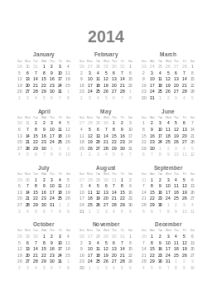25 Days Later…
 How many of us make New Year’s resolutions- or resolutions at any time of the year- and break them within days or weeks? We often hear that if you can stick to a behaviour for 21 days or 30 days, it is likely to become a habit, and therefore easier to stick to. A recent online survey by an online website, Freedeliveryland, found that people are most likely to break their New Year’s resolutions on the 24th day.
How many of us make New Year’s resolutions- or resolutions at any time of the year- and break them within days or weeks? We often hear that if you can stick to a behaviour for 21 days or 30 days, it is likely to become a habit, and therefore easier to stick to. A recent online survey by an online website, Freedeliveryland, found that people are most likely to break their New Year’s resolutions on the 24th day.
However, Halvorsen (2010) argues that there is no “magic number” of how many days we need to stick to something for it to become a habit. Rather, it is more about the person, their personality and their current habits.
Whatever theory you subscribe to, the next big question remains the same: how do you keep to your resolutions? Well, psychological research can help.
If you want to stop biting your nails or to lose weight or stick to your study plan or walk to work every day, how can you make sure you will stick to doing it? Let’s consider some of the following tips -:
1. What is motivating you to want to change?
Motivation research looks at internal and external motivators. An internal motivator to lose weight might be that we want to look good in our new dress at a party next month. An external motivator might be that a parent offers to get us a new TV if we get an A* in an exam. Internal motivators are often stronger than external motivators, though, so consider why YOU want to stick to your goal.
2. Set Macro Goals and Micro Quotas
Using motivation research, Ciotti argues that to stick to habits, we should set macro goals and micro quotas.
Our macro goal is our big goal – what we want to achieve.
Micro quotas are the minimum amount we can do each day to achieve those goals. Some examples –
| Macro Goal | Micro Quota |
| Get an A* in my psychology GCSE this Summer. | Study psychology three hours per week. |
| Become a writer | Write a blog five times a week to practise my writing. |
3. Develop a Plan
It is easy to say, I’m going to write a blog five times a week or study three hours a week, but we also have to plan how we are going to do that. Planning carefully and practically what you need to do is always a big step towards success.
But don’t make your plan big and inflexible, make it realistic and only set out to do what you think is required to achieve the behaviour change, nothing more. That may sound lazy, but if you aim to study three hours a week and you stick to that, you might also find that you end up doing more than three hours a week as you get into the habit of studying.
4. Always Finish What You Start
The Zeigarnik Effect is also an interesting psychological theory. The Zeignarnik Effect states that if we leave a behaviour incomplete, it can cause us to have uncomfortable feelings.
That feeling that we have not completed our task will cause us anxiety and those thoughts can affect us in the future. So if you fail to lose one stone this time, next time you go on a diet, those thoughts of not losing weight last time can affect your attempt to lose weight this time. We often hear from dieters that they feel like they keep failing at their diets.
Basically, the Zeigarnik Effect argues that if we start something and do not finish it, we will experience discomfort.
Sticking to your Resolution
If you have a resolution you want to stick to, you first need to consider –:
1. Do I really want to make this change?
2. What is my motivation for changing?
3. What is my overall goal? – To lose weight, study more, write a book, do a daily blog, stop biting my nails, etc.
4. What are my micro quotas?- Stop taking sugar in my tea, stick to my study plan, write 500 words five times a week on my book, do my blog first thing every morning, use nasty tasting nail polish to stop me biting my nails, etc.
5. The Zeigarnik Effect says you will feel uncomfortable if you start with a new behaviour and don’t carry it on. So the best thing to do is stick to your new behaviour.
6. And finally, if you really want to stick to your resolution, be kind to yourself. You might stick to your new behaviour for 20 days or 30 days or 2 months – and then suddenly stop. Pick yourself up and start again. Just because you have sugar in your tea one morning, doesn’t mean you have failed, it’s just a blip.
I hope this year is the year you stick to your resolutions.
Tracey Jones
Psychology Tutor
Oxford Open Learning